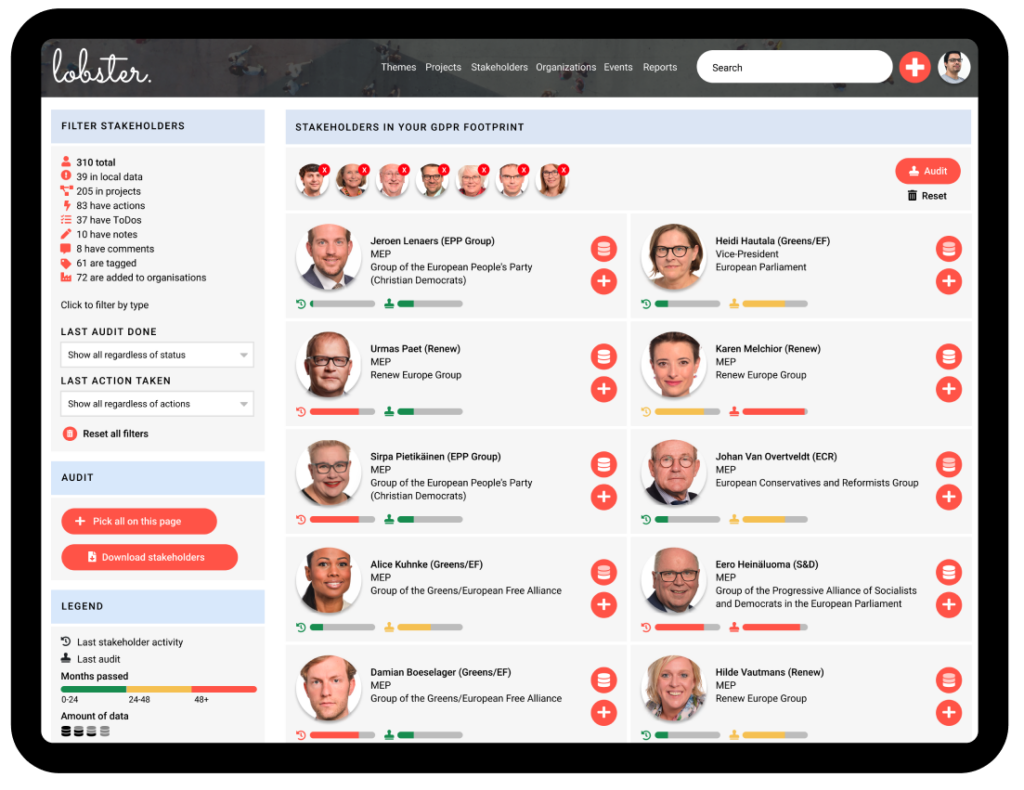Any organisation that does effective advocacy work tends to accumulate stakeholder data of politicians and officials over time. This information is often related to documenting past meetings or to the planning of future advocacy work. How should this information be managed to stay in GDPR compliance?
Storing stakeholder data, whether on paper or in digital form such as databases or even Excel sheets, is strictly regulated by The EU’s General Data Protection Regulation (GDPR). This means that businesses and other organisations need to know their GDPR footprint to mitigate any potential compliance risks.
To achieve GDPR compliance, all contact lists and databases must be kept up to date and regularly checked. And once the stakeholders are no longer acting in a public position, their data should be removed from any listings unless you have a legitimate reason for keeping it.
Do you know where all of your organisation’s data is?
Tracking down all the stakeholder data can be a tedious and time-consuming task if the potentially risky data is scattered around your organisation’s tools. And despite best efforts, there can be that one forgotten outdated, and potentially very noncompliant stakeholder list, that no one remembers…
This is why we recommend using a centralised stakeholder management tool such as Lobster. This will keep all your data in one accessible place.
Help your team with the proper tools
At Lobster, we have been recently focusing on how our clients can assess their stakeholder data stored in their Lobster as straightforwardly as possible. Our goal has been to create a tool that helps you quickly find those parts of your stakeholder data that need reviewing.

Meet Lobster GDPR Audit
This new feature shows you the size of your GDPR footprint, how many stakeholders there are in your data. It also tells you which ones are kept up to date by Lobster and which are added and maintained by your team.
As you take a closer look at your data, you can filter it regarding:
– how recently each profile has been in use
– when was the last time each profile was audited
– the content types the profile contains
Each stakeholder also has an icon indicating how much data is linked to their profile.
This helps you find the stakeholders, whose information you should inspect in more detail and assess whether you have the grounds to still store it.
As you find a stakeholder that needs further reviewing, you can easily access all data entries in detail. This helps you decide whether to audit the stakeholder or remove the stakeholder from your data.
Audit in mass
The quickest way to audit stakeholders is by using the filters, such as when was the most recent action. After narrowing down the group of stakeholders and checking them, you can audit them all at once.
Note that this feature is potentially very powerful, so it is only available for Lobster users with admin rights. If you are a Lobster administrator, you’ll find the GDPR Audit right on your Lobster dashboard.

